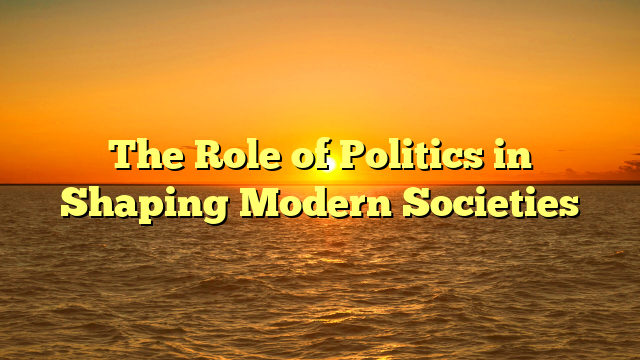Politics is an inseparable part of human civilization, guiding the organization of societies and influencing nearly every aspect of daily life. From the policies that regulate economies to the laws that ensure justice and equality, politics provides the framework within which nations operate. In the modern era, politics has evolved into a complex system that not only reflects the values of a society but also shapes its future diponegoro4d. Understanding the role of politics is essential to appreciate how communities function and how individuals can actively participate in governance.
At its core, politics is about power, decision-making, and the distribution of resources. Governments are established to manage these aspects fairly, ideally ensuring that the needs of the people are met. However, political systems vary across the globe, ranging from democracies to authoritarian regimes. In democratic states, power is typically placed in the hands of elected representatives, allowing citizens to have a voice in shaping policies. In contrast, authoritarian systems often limit public participation, placing authority in the hands of a few leaders. Each system reflects cultural, historical, and social conditions unique to that nation.
One of the most significant roles of politics is the creation of laws and policies. These regulations affect education, healthcare, the economy, and even personal freedoms. For instance, decisions about taxation influence how wealth is distributed within society, while policies on environmental protection determine how natural resources are preserved for future generations. Political leaders and institutions, therefore, hold great responsibility in balancing short-term needs with long-term sustainability.
Politics also plays a crucial role in conflict resolution. Disagreements are inevitable in diverse societies, but political frameworks provide mechanisms for negotiation and compromise. Parliamentary debates, judicial reviews, and international diplomacy are examples of political processes that aim to resolve disputes without resorting to violence. In this sense, politics serves as a tool for maintaining stability and fostering peace.
In the modern world, the influence of politics extends beyond national borders. Globalization has interconnected economies and societies, meaning that decisions made in one country can affect others. Issues such as climate change, migration, and international trade require cooperation among nations. Political institutions like the United Nations and regional organizations such as the European Union or ASEAN highlight the importance of collective decision-making on a global scale.
However, politics is not without its challenges. Corruption, polarization, and the misuse of power remain persistent issues in many countries. When political leaders prioritize personal gain over public interest, societies suffer. Likewise, when political debates become deeply polarized, cooperation becomes difficult, and progress slows. These challenges highlight the importance of transparency, accountability, and civic engagement in maintaining healthy political systems.
Citizens also play a critical role in politics. Voting, participating in community discussions, and holding leaders accountable are ways individuals can influence governance. In democratic societies, political awareness among the population ensures that leaders act in accordance with the people’s needs. Even in non-democratic contexts, civic engagement can push for reforms and greater fairness.
In conclusion, politics is a powerful force that shapes the structure and future of societies. It governs laws, resolves conflicts, and provides direction for national and global development. While challenges such as corruption and polarization remain, the active participation of citizens can help ensure that politics fulfills its purpose of serving the common good. Ultimately, politics is not merely about leaders and governments—it is about people, communities, and the shared vision of a better future.
